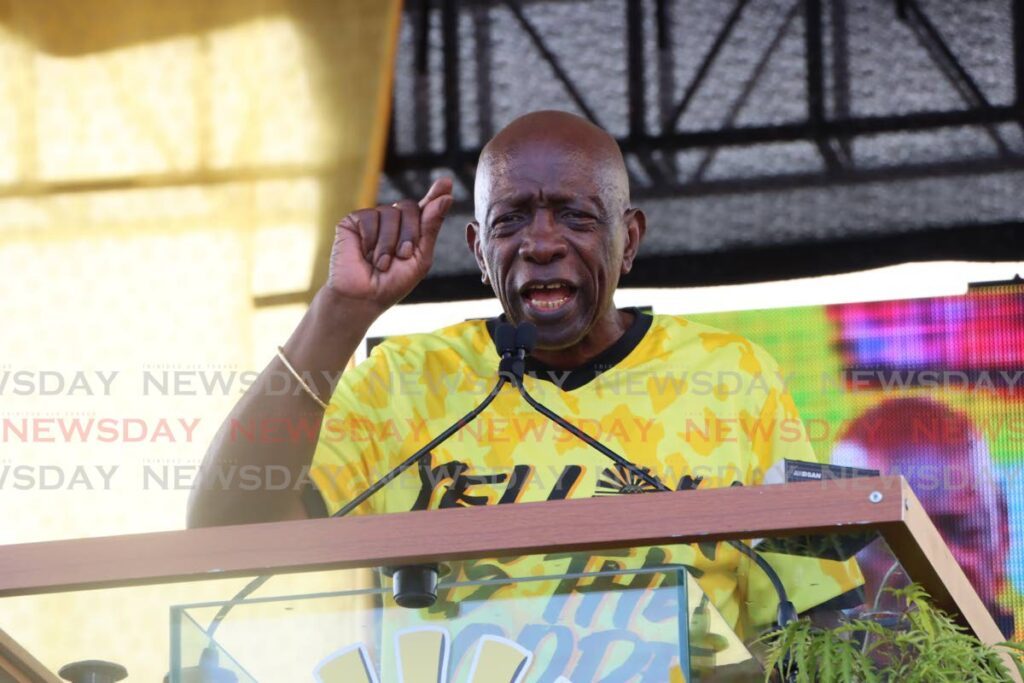Warner must repay $1.5m

FORMER UNC chairman Jack Warner has been ordered to repay a $1.5 million loan to the party’s one-time financier Krishna Lalla and his company.
On Monday, the Privy Council allowed Lalla’s appeal and ordered Warner and his companies, Dr Joao Havelange Centre of Excellence, Renraw Investments, CCAM and Company, to repay $1,505,493 and interest from May 15, 2018, until the sum is repaid.
Lalla’s lawsuit sought to retrieve a “loan” given to Warner, who was also a former FIFA vice president, before the general election campaign of 2007.
Warner denied it was a loan and said several businesses were selected to receive financing from Lalla to assist the party in the 2007 general election.
In May 2018, Justice Frank Seepersad ordered Warner to repay the money, but the former FIFA vice president appealed.
In February 2020, three appellate judges overturned Seepersad’s ruling.
The three judges who sat on Warner’s appeal, Justices of Appeal Gregory Smith, Judith Jones and Charmaine Pemberton, all agreed that Seepersad made material errors in his assessment of the evidence in concluding that the money was advanced to Warner as a loan.
They allowed his appeal and set aside Seepersad’s order, including the repayment order.
However, two judges – Justices Gregory Smith and Charmaine Pemberton – found that certain statements made by Seepersad in his judgment, as it related to campaign financing, which were complained of by Warner, “in their entirety would lead to a real possibility” that the “trial judge’s personal views on the morality or ethics behind unregulated campaign financing coloured his views against a public official who accepted unregulated campaign funding.”
Smith and Pemberton said that even if the appeal by Warner and his companies were not allowed on the main complaint, it would have been remitted for rehearing before another judge because of apparent bias. Jones, however, did not agree with her colleagues on the apparent bias point but concurred on the “errors” identified in Seepersad’s findings.
However, on Monday, all six errors attributed to Seepersad’s findings identified by the Appeal Court were dismissed by Lords Hodge, Lloyd-Jones, Kitchin, Hamblen and Stephens.
In their ruling, the judges said the criticisms of the judge were “misplaced.”
They said the judge’s findings on the financial arrangement between the two men could not be faulted based on the evidence led before him at the trial.
“The case that this was a gift, in return for benefits if the UNC formed a government, was a case being made by the defendants.
“The judge was under a duty to and did consider whether that case was or was not established on the balance of probabilities…
“He concluded that it was not probable. The Board considers that he was entitled to make that finding.”
On the finding by the appellate court that Seepersad’s extra-judicial comments gave rise to his apparent bias in the case, the Privy Council said it did not.
“First, the judge did not come to the trial with preconceived and partisan views.
He had not expressed any particular views on the subject of unregulated campaign financing prior to the trial.
“Rather, the judge was reacting to the case which was made by the defendants in their pleading and during cross-examination.”
The judgment also said there was no complaint about the way Seepersad conducted the trial, adding that he “carefully heard and then analysed all the evidence having had the benefit of and engaged with detailed closing submissions.”
The judges further noted, “Third, the judge’s antipathy to unregulated campaign financing was not only directed at politicians who accepted campaign financing but was also directed at those who financed campaigns in order to purchase goodwill and exercise undue influence over politicians and political parties.
“The Board considers that the majority in the Court of Appeal wrongly characterised the judge’s antipathy as being directed solely at Mr Warner. It was not.”
They also said statements Seepersad subsequently made in a speech to the TT Transparency Institute, long after he delivered his ruling, “did no more than repeat” what he said in his judgment.
The Privy Council said since the ground of apparent bias was not raised in the appeal but only in written submissions, reflected the fact that those who were present when Seepersad gave his ruling “understood the dynamics of the trial did not consider the comments made in the judgment raised a real possibility of bias.”
The judge said Seepersad’s comments were not inappropriate nor was there anything in his findings that pointed to his views on campaigning financing causing him to prejudge the issues in the case.
“..The comments made by the judge was a criticism of the behaviour of both sides…” and “captured both Mr Lalla and Mr Warner equally so that there was no predisposition to decide the case for one side or the other.”
Speaking on behalf of Lalla, attorney Kiel Taklalsingh said, “My client is pleased with the restoration of Justice Seepersad’s decision by the Privy Council.
“While they respect the erudition of the Court of Appeal, we felt they got it very wrong on this occasion and had no basis in law to overturn Justice Seepersad’s decision.
“We also strongly disagreed with the Court of Appeal’s findings of bias against Justice Seepersad.
“The judge was entitled to call for laws on campaign financing and we did not think that could be a basis for suggesting bias.”
Taklalsingh appeared at the Privy Council for Lalla along with UK attorney Robert Strang while Warner was represented by John Jeremie, SC, Richard Thomas, KC, and Jacqueline Chang.
Newsday understands there are other cases involving similar claims of a loan arrangement between companies associated with Lalla against Warner amounting to close to $20 million.
Warner told Newsday he had “no comment to make.”

Comments
"Warner must repay $1.5m"